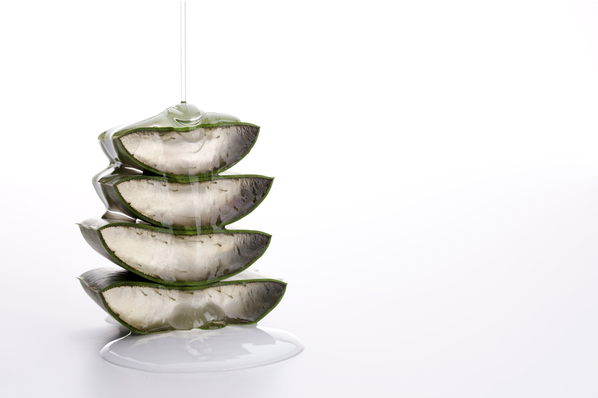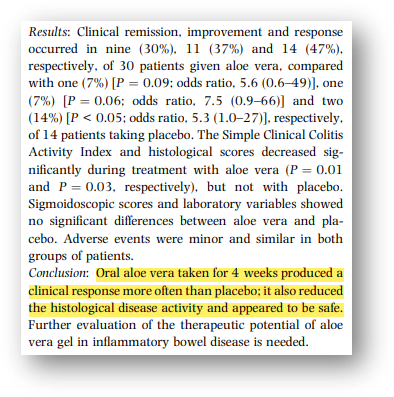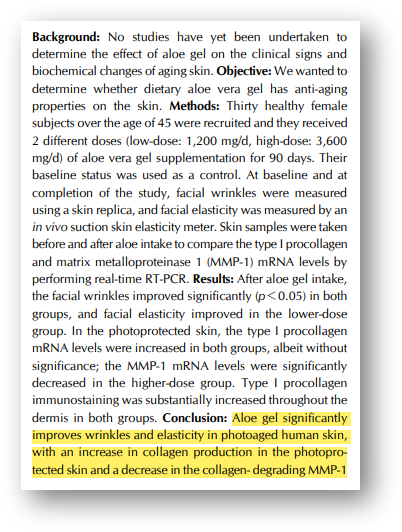Aloe gel, which is an all-rounder, is good to apply but even better when eaten.
peptic ulcer2. Improves
inflammatory bowel disease

Hello. I'm a pharmacist Jinny.
One of the most frequently sought after skincare ingredients in summer is aloe. Haven't you all had the experience of applying a thick layer of aloe soothing gel that was kept cold in the refrigerator to soothe your skin that has been reddened by the summer heat and UV rays? As such, aloe, a skincare ingredient that we are familiar with, is actually also an ingredient that has more benefits when consumed.
In particular, the polysaccharides contained in aloe gel, which refers to the part of the gel that has been peeled off the leaves of aloe vera, have a protective effect on immunomodulatory and immunomodulatory substances when taken orally. Intestinal Health · In addition to accumulating research results that show its efficacy in improving skin health, it has recently been reported in the academic community that the consumption of aloe gel can improve the intestinal mucosa and regulate the intestinal immune system, inhibit the occurrence of colon tumors, and contribute to the prevention of colorectal cancer [1].
According to the results of such accumulated research by the academic community, the Ministry of Food and Drug Safety of Korea has also approved the improvement of immunity for aloe gel, which contains more than 3% of the key ingredient 'polysaccharides'. Skin Health · It recognizes the triple function of intestinal health. As the benefits of ingestion are complex ingredients, today we will take a look at which people should pay special attention to aloe gel through human application tests.
Immunity · Skin Health · When aloe gel's three functions of improving gut health work together, the organ that can benefit most is the digestive system. This is because the digestive system is made up of mucous membrane tissue and is an organ that accepts foreign food, and it is easy for bacteria to invade, so proper immunity and mucous membrane (skin) health are important to maintain health.
Academics have also taken this into consideration and evaluated the effects of aloe vera gel intake in patients with peptic ulcers. In this study, which confirmed the improvement of severe peptic ulcer following 45 days of aloe vera gel intake, the authors present the conclusions of the study as follows [2].

"Many patients have fully recovered from acute peptic ulcer, which is due to aloe gel's inhibition of hydrochloric acid secretion, pepsin anabolism, and overall detoxification ... Aloe vera gel protects stomach acid from the stomach lining when it is irritated or damaged. Aloe vera gel is not only easily absorbed by the stomach, but also neutralizes excess stomach acid and promotes the healing environment for ulcers."
Even before the functionality of aloe gel was scientifically understood, it was a food ingredient that was consumed on a daily basis for skin health and intestinal health. Especially in the West, aloe seems to have been popular not only to improve constipation, but also to improve inflammatory bowel disease with abdominal pain, diarrhea, and fever.

From the studies introduced above, you should have a good understanding of the contribution of aloe gel to the improvement of inflammation in the digestive system and the maintenance of mucous membrane health. However, since it is such a widely used ingredient in skincare, it would be a shame if you don't check if it can help your 'facial skin' health even when you do consume it.
In 2009, the scientific community reported the results of a clinical trial that evaluated the effects of 90-day intake of aloe vera gel on 30 healthy female subjects over the age of 45. In this study, the consumption of aloe gel was found to improve the appearance of facial wrinkles and skin elasticity, and the authors state the results of the study as follows [4].

"Aloe gel increases collagen production in photoaged skin and decreases the expression of the MMP-1 gene that breaks down collagen, which greatly improves the wrinkles and elasticity of photoaging human skin."
Today, we looked at aloe gel, which is easy to apply and eat. When I searched while preparing to introduce aloe gel this time, there were people who were already aware of these benefits and were consuming aloe juice or aloe leaves, but since the key ingredient that exerts the same benefits as introduced today is the 'polysaccharide' in aloe gel, it would be more beneficial to choose 'aloe gel', a health functional food that has been confirmed by the Ministry of Food and Drug Safety for the content of total polysaccharides.
I hope you have a healthy day in body and mind. It was Jinny.
[1] Im, S. A., Kim, J. W., Kim, H. S., Park, C. S., Shin, E., Do, S. G., ... & Lee, C. K. (2016). Prevention of azoxymethane/dextran sodium sulfate-induced mouse colon carcinogenesis by processed Aloe vera gel. International immunopharmacology, 40, 428-435.
[2] Rajendran, A., Sobiya, G., & Gnanavel, I. (2008). Study on the effective supplementation of Aloe vera gel antacid to peptic ulcer patients. Res J Medicine & Med Sci, 3(2), 132-134.
[3] Langmead, L., Feakins, R. M., Goldthorpe, S., Holt, H., Tsironi, E., De Silva, A., ... & Rampton, D. S. (2004). Randomized, double‐blind, placebo‐controlled trial of oral aloe vera gel for active ulcerative colitis. Alimentary pharmacology & therapeutics, 19(7), 739-747.
[4] Cho, S., Lee, S., Lee, M. J., Lee, D. H., Won, C. H., Kim, S. M., & Chung, J. H. (2009). Dietary Aloe vera supplementation improves facial wrinkles and elasticity and it increases the type I procollagen gene expression in human skin in vivo. Annals of dermatology, 21(1), 6-11.



![[Cranberry benefits] is it good for urinary tract health? 3 Benefits of Cranberries](http://esther-mall.com/cdn/shop/articles/37.jpg?v=1734004929&width=480)
